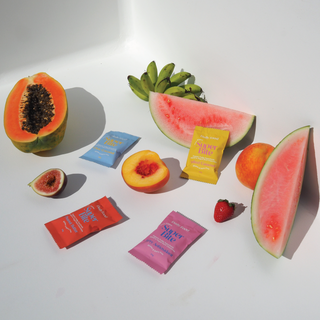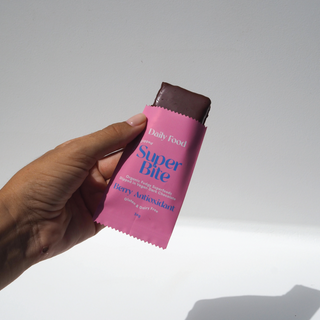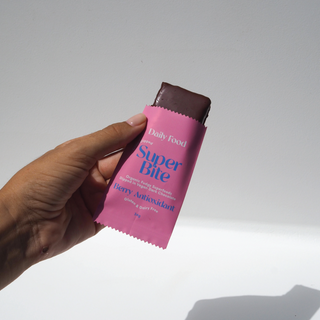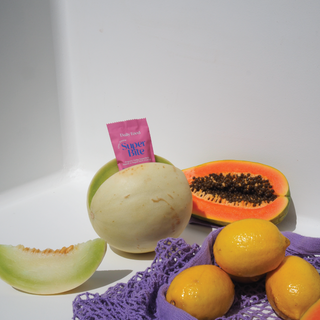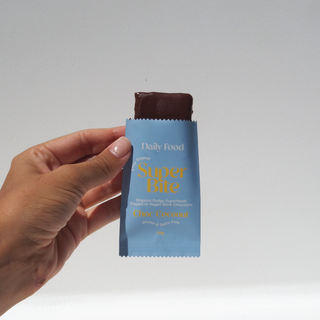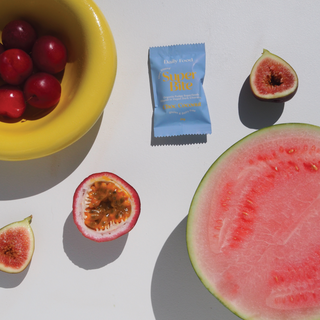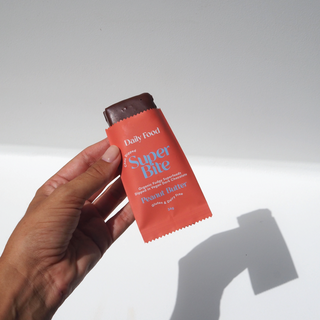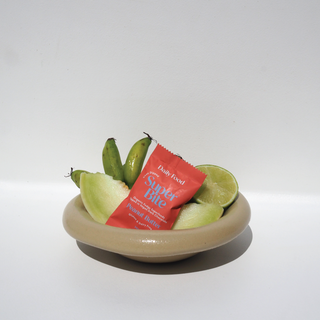The holiday season is meant to be a magical time. It is, for sure. But it can also be really difficult for many of us, and that’s not something we think gets spoken about enough.
Maybe you feel lonely. Maybe money is tight, and the pressure to spend is weighing heavily. Maybe you have difficult family dynamics to navigate, or maybe your family isn’t around at all. Whatever challenge is present for you, this time of year does a pretty good job of making it feel loud.
To get specific – we want to talk about the food-related anxiety and stress that can have a genuine impact at this time of year.
More than 1 million Australians live with an eating disorder of some kind, and The Butterfly Foundation estimates that crisis calls across the festive season increase substantially year-on-year, with a 35% increase since 2019.
It’s nuanced, personal, and so different for everyone, but it’s very real. If it’s you or someone you love, here are five things we think might help (or at least be a good place to start).
- Focus on the joy food brings
Food has the power to connect us like few things can. Whether it’s a birthday dinner at your favourite restaurant, having the girls around for wine and cheese, or your go-to takeaway on the couch on a Friday night – so many of the happy moments in our lives with the people we love revolve around food.
And, science validates this too. A study on wild chimpanzees (stay with us) showed that oxytocin levels (the feel-good, love hormone) were highest following food-sharing events. Cute, huh?
Aside from creating a sense of togetherness, oxytocin can work some serious magic in our bodies. It's like a stress-buster superhero. It helps lower our cortisol levels (which are responsible for stress and anxiety) and makes us feel all warm and fuzzy on the inside.
So, when food-related anxiety starts to rear its ugly head, try to shift your focus to the people around the table – not the food sitting on it.

- Remember, “food” and “guilt” do not belong in the same sentence.
You should never feel guilty about the food you choose to eat. And, PSA: that is true for every single day of the year – not just the 25th of December.
Food is here to be enjoyed. It’s nourishing, it fuels your brain and your body, and, best of all, it’s delicious. There are no “good” or “bad” foods, and if you check – you’ll never find guilt listed as an ingredient.
Unfortunately, we live in a society that tries to tell us otherwise. Soon, we’ll start hearing news segments about “Exercises to Burn Off Christmas Lunch!” or brands asking us to join their “How to Get a Bikini Body in 2024” instruction manuals – as if the body you live in now is wrong or not enough.
Make us a promise. Do your best to push all of that to the side. Whether it’s coming from family members, friends, TV personalities, or voices online – remember that when it comes to food, you have nothing to feel guilty about. You are perfect as you are, and we won’t hear another word about that, thank you very much!
- Schedule in your self-care time
December is a crazy month as it is. Festive events are booked in left, right, and centre and sometimes it can feel completely overwhelming. Add in some food-related anxiety on top of that, and you might find the wheels want to fall off altogether.
It seems simple, but scheduling in your self-care time can really make a big difference. It might be a long walk on the beach, your favourite gym class, a bath and face mask situation, or just some general downtime. Prioritise the things that you know make you feel good.
Pick them, book them in, and show up for yourself the way you show up for your Wednesday WIP.

- Tell someone you’re close to
It’s said that when shared, challenges are halved, and joy is doubled.
If you’re struggling with food or body-related anxiety, try to tell someone you’re close to. We know it’s scary and it can feel awkward or embarrassing (55% of you told us you don’t talk about it in our You & Food survey), but trust us: the load will feel lighter when you share it.
So, choose someone you trust and let them in on what you’re going through. The right person will listen and won’t judge. They can be someone to lean on when things get particularly hard, and they might be able to shield you from what you struggle to shield yourself from. You deserve that.
- Get professional support
If you’ve tried all of these tips and you still feel the anxiety weighing heavy, it might be time to find a professional to speak to.
Therapists, psychologists, or registered dieticians have specialized knowledge when it comes to the link between emotions and eating behaviors. They can help you unpack what’s happening and give you tools to manage it to help get your relationship with food and your body back to a healthy place.
You can try:
- The Butterfly Foundation
- Reach Out Australia
- Lifeline (13 11 14)
- Or your local GP
And, remember: you are not alone, you are loved, and you are enough. Always.


